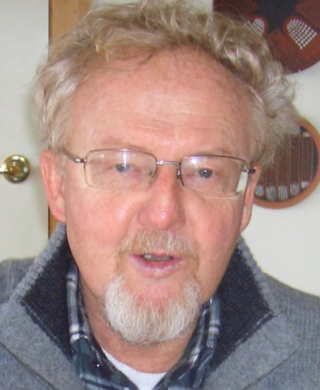
The University of Waikato, established in 1964, is a public research university located in Hamilton, New Zealand. An additional campus is located in Tauranga. The university performs research in numerous disciplines such as education, social sciences, and management and is an innovator in environmental science, marine and freshwater ecology, engineering and computer science. It offers degrees in health, engineering, computer science, management, Māori and Indigenous Studies, the arts, psychology, social sciences and education.

Waikato District is a territorial authority of New Zealand, in the northern part of Waikato region, North Island. Waikato District is administered by the Waikato District Council, with headquarters in Ngāruawāhia.

South Waikato District is a local government district in the Waikato Region of the North Island of New Zealand. It is located between the cities of Hamilton to the north, Rotorua to the east, Taupō to the south and Ruapehu District to the west.
Nuh Ha Mim Keller is an American Islamic scholar, teacher and author who lives in Amman. He is a translator of a number of Islamic books.

Islam is the third-largest religion in New Zealand (1.3%) after Christianity (37.3%) and Hinduism (2.7%). Small numbers of Muslim immigrants from South Asia and eastern Europe settled in New Zealand from the early 1900s until the 1960s. Large-scale Muslim immigration began in the 1970s with the arrival of Indian Fijians, followed in the 1990s by refugees from various war-torn countries.

Islam is a minority faith in Wales followed by 2.2 % of its population with about 64,000 adherents recorded as per 2021 Census up from about 46,000 adherents in the 2011 Census. The earliest recorded connections between Wales and the Muslim world dates back to the early 12th Century. There has been a Somali and Yemeni Islamic community in Cardiff since the mid-19th century, founded by seafarers to Cardiff Docks. The first purpose-built mosque was erected in Cardiff in 1947.
The Federation of Islamic Associations of New Zealand (FIANZ) was set up in April 1979 by Mazhar Krasniqi and other Muslim community leaders to draw together the regional Islam organisations of Auckland, Wellington and Canterbury into one centralised New Zealand-wide body.

Mazhar Shukri Krasniqi (1931–2019) was a New Zealand Muslim and Albanian community leader of Kosovar Albanian descent, businessman and human rights activist. He was both the first president of the New Zealand Albanian Civic League and Federation of Islamic Associations of New Zealand (FIANZ).
New Zealand Muslim Association (NZMA) established in 1950 is the oldest Islamic institution in New Zealand. The New Zealand Muslim Association (NZMA) was formed in the year 1950, with the objective to serve all Muslims brothers and sisters within New Zealand. The first chairman of NZMA was Marhum Suilman Ismail Bhikoo. He was instrumental in establishing a Muslim burial ground at Waikumete Cemetery in Glen Eden, West Auckland in 1966. Former presidents of the NZMA include Kosovo-born Mazhar Krasniqi and Nazmi Mehmeti from North Macedonia (1963). The longest serving Executive Committee member between 1956 and 1981 was Hajji Avdo Musovich (1919–2001), originally from Montenegro. NZMA is responsible for the five branches; Ponsonby mosque, Ranui mosque, Avondale Islamic Centre, Birkenhead Islamic Centre and Kelston Islamic Centre. More information can be found on the NZMA website: www.nzma.kiwi.nz
Nazmi Mehmeti (1918-1995), also recorded as “Mehmetovitch” on the SS Goya.
MS Goya was a Norwegian refugee ship that carried hundreds of Eastern European refugees to New Zealand in 1951. Most notably it carried several men who went on to play a significant role in the development of the New Zealand Muslim Association including Mazhar Krasniqi and Nazmi Mehmeti.

Religion in New Zealand encompasses a wide range of groups and beliefs. New Zealand has no state religion and freedom of religion has been protected since the signing of the Treaty of Waitangi.

Joel Hayward is a New Zealand-born British scholar, academic and writer. He has been listed in the 2023 and 2024 editions of The World's 500 Most Influential Muslims. He has been the Dean of the Royal Air Force College Cranwell and is now the Chief Executive of the Cambridge Muslim College in the United Kingdom.
Māori Muslims are a small minority community in New Zealand.

Ahmadiyya, officially the Ahmadiyya Muslim Jama'at (AMJ) is an Islamic messianic movement originating in British India in the late 19th century. It was founded by Mirza Ghulam Ahmad (1835–1908), who said he had been divinely appointed as both the Promised Mahdi and Messiah expected by Muslims to appear towards the end times and bring about, by peaceful means, the final triumph of Islam; as well as to embody, in this capacity, the expected eschatological figure of other major religious traditions. Adherents of the Ahmadiyya—a term adopted expressly in reference to Muhammad's alternative name Aḥmad—are known as Ahmadi Muslims or simply Ahmadis.
Abdul Rahim Rasheed was a Fijian-born Indian Muslim community leader and lawyer in New Zealand.
Albanian New Zealanders are residents of New Zealand who are of Albanian heritage or descent, often from Kosovo, with smaller numbers from Albania and a few from North Macedonia. Albanian New Zealanders are mainly concentrated in the city of Auckland. The Albanian community has been present in New Zealand since the mid twentieth century and are an integrated part of its society.

The Al Noor Mosque is a Sunni mosque in the Christchurch suburb of Riccarton in New Zealand. It was built between 1983 and 1985 by the Muslim Association of Canterbury, an organisation founded in 1977 that also manages the mosque building. It was the primary target of the Christchurch mosque shootings of 15 March 2019.
Ismail Diriye Gamadiid was a Somali politician, teacher, environmentalist and community leader.

Erich Kolig is an Austrian–New Zealand cultural and social anthropologist whose research has focussed on Muslim and Islamic social and religious issues, and Australian Aboriginal culture. He has written and edited 13 books, as well as publishing many scientific papers and book chapters.









